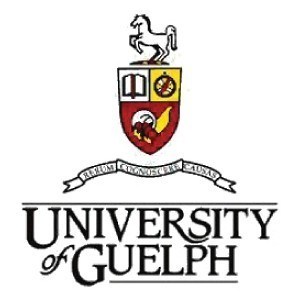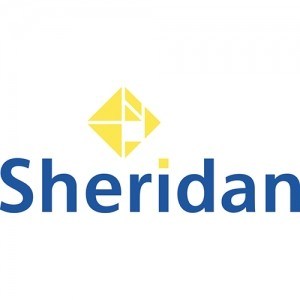Photos of university / #uofgadmission
The Physics program at the University of Guelph offers a comprehensive and rigorous education designed to prepare students for diverse careers in science, research, education, and technology. This undergraduate degree provides students with a strong foundation in the fundamental principles of physics, including classical mechanics, electromagnetism, thermodynamics, quantum mechanics, and modern physics. The curriculum emphasizes both theoretical understanding and practical skills, incorporating laboratory experiments, computational methods, and research projects that foster critical thinking and problem-solving abilities. Students have access to state-of-the-art facilities and resources, enabling them to engage in meaningful scientific inquiry and experimentation. The program also encourages interdisciplinary learning by integrating physics with other scientific disciplines such as mathematics, computer science, and engineering. Undergraduate students are supported by dedicated faculty members who are active researchers and experienced educators, offering mentorship and guidance throughout their academic journey. Opportunities for undergraduate research projects, internships, and cooperative education placements are available, providing real-world experience and enhancing employability upon graduation. The program aims to develop not only technical expertise but also transferable skills such as communication, teamwork, and analytical reasoning. Graduates of the Physics program at the University of Guelph are well-equipped to pursue advanced studies in physics or related fields, enter research positions in industry and government laboratories, or pursue careers in education, science communication, and technical consulting. With a focus on experiential learning and innovative teaching practices, the program prepares students to contribute meaningfully to scientific advancement and technological innovation in a variety of professional settings. Whether aiming for graduate studies or entering the workforce, students will find a supportive academic environment dedicated to cultivating curiosity, critical thinking, and a deep understanding of the physical universe.
The Bachelor of Science in Physics at the University of Guelph offers students a comprehensive introduction to the fundamental principles governing the natural universe. This program is designed to develop a deep understanding of physical concepts, ranging from classical mechanics and electromagnetism to modern topics such as quantum mechanics, thermodynamics, and condensed matter physics. Throughout the course of study, students will gain both theoretical knowledge and practical skills through rigorous coursework, laboratory experiments, and research opportunities. The curriculum emphasizes critical thinking, problem-solving, and analytical skills, preparing graduates for diverse careers in science, education, research, technology, and industry.
Students in the Physics program can expect to engage with a broad array of subjects, including mathematical methods for physics, statistical mechanics, astrophysics, and computational physics. The program encourages students to participate in hands-on laboratory sessions designed to reinforce theoretical understanding and develop technical proficiency in experimental techniques. Additionally, students have opportunities to collaborate on research projects, often in partnership with faculty members involved in cutting-edge scientific investigations. The program also offers elective courses that allow students to tailor their education to specific interests, such as applied physics, environmental physics, or materials science.
In addition to coursework, the program fosters critical scientific skills like data analysis, scientific communication, and technical writing. Students receive training in using modern physics laboratory equipment and computational tools essential for scientific research. The program emphasizes a strong foundation in mathematics, essential for formulating physical theories and solving complex problems. Moreover, students are encouraged to participate in internships, co-op placements, or undergraduate research projects to gain practical experience and enhance their career prospects.
Graduates of the Physics program are well-prepared for graduate studies in physics, engineering, or related sciences or for direct entry into the workforce in areas such as technological development, data analysis, education, or environmental science. The program aims to cultivate curiosity, analytical thinking, and innovative problem-solving skills, equipping students to contribute meaningfully to scientific advancement and technological progress. With a combination of rigorous coursework, research opportunities, and practical experience, the University of Guelph’s Physics program provides a robust platform for students passionate about understanding the fundamental laws of nature and applying scientific principles to real-world problems.
Program Requirements: The Bachelor of Science in Physics at the University of Guelph requires students to complete a minimum of 120 undergraduate credits, including required core courses, electives, and supporting coursework. Students must successfully complete foundational courses such as Physics 1 and 2, which cover classical mechanics, electromagnetism, thermodynamics, and modern physics. In addition, they are expected to undertake advanced courses in quantum mechanics, statistical mechanics, mathematical methods for physics, and laboratory techniques to develop practical skills. To provide a comprehensive understanding of the field, students are encouraged to participate in research projects and practicums, often integrated into the curriculum, which facilitate hands-on experience. The program emphasizes the development of analytical, problem-solving, and experimental skills, preparing students for careers in research, industry, or further study in physics or related disciplines. General education requirements also include courses in communication, ethics, and critical thinking to foster well-rounded graduates. Students must meet university-wide academic standards, including maintaining a minimum cumulative GPA as specified by the program. Elective courses can be chosen from related fields such as astronomy, computer science, or engineering to broaden interdisciplinary knowledge. The program may also require submission of a senior thesis or comprehensive exam, demonstrating mastery of core concepts and research methodologies. To graduate, students must complete all coursework within the allotted time frame, fulfill any internship or co-op requirements if applicable, and adhere to the university's academic integrity policies. The curriculum is designed to be flexible, allowing students to tailor their studies according to their interests and career objectives while ensuring a solid foundation in core physics principles.
Funding options for the Physics program at the University of Guelph include a variety of financial support mechanisms designed to assist students throughout their studies. Entrance scholarships are available based on academic achievement, providing initial financial aid to outstanding students upon admission. Additionally, the university offers the Guelph Graduate Scholarships and Fellowships, which are awarded competitively to both domestic and international students pursuing graduate studies in Physics. These scholarships typically consider academic excellence, research potential, and the applicant's overall academic record. Teaching assistantships (TAs) are a common form of funding for graduate students, offering the opportunity to assist faculty with teaching responsibilities in exchange for a stipend and tuition remission. Research assistantships (RAs) are also available, enabling students to work closely with faculty on research projects, thereby gaining valuable experience while receiving financial support. External scholarships and bursaries from government agencies, private foundations, and industry partners are another avenue for funding. For example, students can apply for federal programs such as the Canada Graduate Scholarships (CGS) and Ontario Graduate Scholarships (OGS), which provide substantial financial support to eligible students. The university also provides bursaries based on financial need, which do not require repayment and are awarded based on a student’s financial circumstances. In addition, many students seek part-time employment either on campus or off-campus to supplement their income while studying. The university’s career services and job placement offices assist students in finding suitable employment opportunities. Graduate students are encouraged to explore grants, funding competitions, and research grants specific to their field of study. Overall, the University of Guelph provides a comprehensive support system of scholarships, assistantships, bursaries, and external funding options to help students finance their Physics studies and reduce financial barriers to academic success.
The Bachelor of Science in Physics at the University of Guelph provides students with a comprehensive understanding of the fundamental laws governing the universe. The program emphasizes both theoretical and experimental approaches, preparing graduates for careers in research, industry, or further studies in physics or related fields. Students have the opportunity to explore core topics such as classical mechanics, electromagnetism, thermodynamics, quantum mechanics, and modern physics, alongside specialized courses in areas like astrophysics, condensed matter physics, and computational physics. The curriculum is designed to develop strong analytical, problem-solving, and mathematical skills, which are essential for interpreting physical phenomena and conducting scientific research. The university’s state-of-the-art laboratories and research facilities offer students practical experience through experiments and projects, fostering hands-on learning. In addition to coursework, students are encouraged to participate in research opportunities, internships, and collaborations with faculty members, enhancing their understanding and professional development. The program also focuses on developing communication skills, enabling students to effectively present scientific ideas and findings. Graduates from the program are well-prepared for employment in scientific research, technology development, education, and other fields that require a solid foundation in physics and quantitative analysis. The University of Guelph’s Physics Department promotes a collaborative and innovative learning environment, supporting students throughout their academic journey. This program is suitable for students who have a strong interest in understanding the physical world and aim to contribute to technological advancements and scientific discovery.


